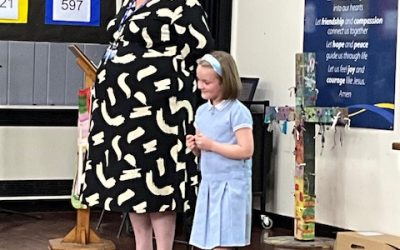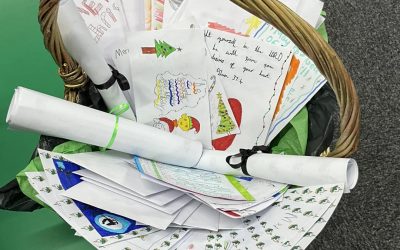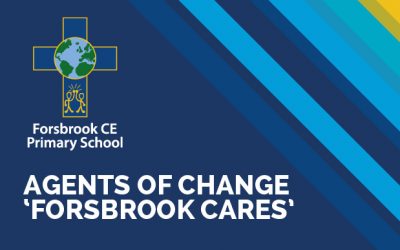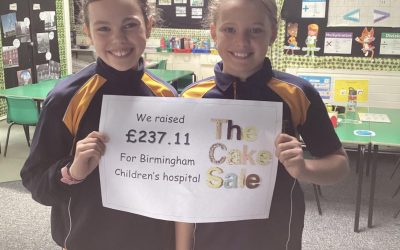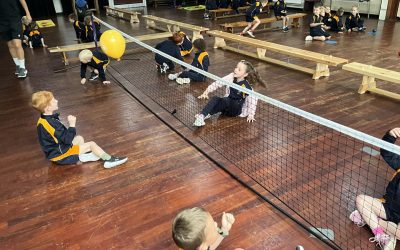Agents of Change – ‘Forsbrook Cares’
At Forsbrook Church of England Primary School, we foster a deep understanding of what it means to be agents of change. An agent of change is someone who passionately champions a cause that is meaningful and special to them.
Our school places a strong emphasis on nurturing our pupils to become courageous advocates, not only within our local community but also on a national and global scale. We believe that at some point in life, we all face challenges and require support to overcome these barriers. Therefore, we teach our children the importance of helping others, regardless of their background, origin, or the challenges they may face.
Guided by our Christian vision, the entire school community is inspired to engage in social action and become advocates for change in their local, national, and global communities. To ensure a secure understanding of what courageous advocacy entails, we provide opportunities for our children to explore the lives of courageous advocates from both the past and the present. By learning about individuals who have faced injustice and overcome barriers to help others for the greater good, our children develop a strong foundation in understanding the essence of courageous advocacy.
We believe it is vital for our children to appreciate their role as integral members of a community, nurturing a sense of responsibility and understanding their importance, impact, and influence in the world. To reinforce these values, we undertake various fundraising activities to support important causes. Some examples include contributing to the local food bank, participating in The Royal British Legion Poppy Appeal, and engaging in Toilet Twinning initiatives.
Our children demonstrate an exceptional grasp of what it means to belong to both a local and global community, recognising the associated sense of responsibility. Through empathy and small sacrifices, they actively contribute to benefiting others. Our school community and curriculum reflect a genuine commitment to our world, considering its beauty, fragility, and the impact of our actions on the well-being of everyone. We diligently demonstrate our connection to and care for the world we inhabit, as well as the people who share it:
- We support charities that hold significance for our children.
- The School Council seeks the input of pupils to determine which causes we should support.
- We establish connections with schools locally and internationally, fostering an understanding of similarities, differences, and how we can support and develop each other.
- Our strong PTA organizes community events, such as Christmas and Summer Fayres and discos.
Examples by members of our school community as agents of change can be found in the school newsletter and the following:
- Children from all year groups participated in a litter pick to support their local community following an organised event.
- A Year 6 child courageously had her hair cut to support the Little Princess charity.
- Our children volunteer at a local animal sanctuary, aiding in the rehabilitation of animals.
- We composed a letter to the local MP to support our community project.
- The children took the initiative to lead a cake sale, raising funds for Ukraine.
These agents of change acts exemplify the values we instill in our students and serve as inspirations for their peers. At Forsbrook Church of England Primary School, we are proud to foster a community of agents of change, empowering our children to make a positive difference in the world.
Agents of Change
At Forsbrook C of E Primary school we encourage the children to become Agents of Change. We achieve this by encouraging our children to make positive change in the world. Agents of Change are people who want to:
- make the world a better place for everyone
- help others to see where there is injustice and help to bring solutions
- make a positive impact on their local community
In the Bible we see Jesus as the original Agent of Change, reaching out to people who needed the most help.
Could you be an Agent of Change?
You don’t need any special skills or training, you just need to be ready to help out and speak out wherever there is a need.

Here are some Agents of Change…
Kira, aged 10 years old:
“I raised £351 by completing 100 skips everyday in the month of December and I made braclets that I sold. The money was donated to Brain Research UK.”
Daisy, aged 11 years old:
“I donated 12 inches of my hair to the Little Princess Trust for people to make wigs for those who need a wig when going through cancer treatment. I also raised £435 that will pay for two wig fittings.”
Agents of Change is about people like us wanting to change the world. It doesn’t matter how old you are, you can make a difference.
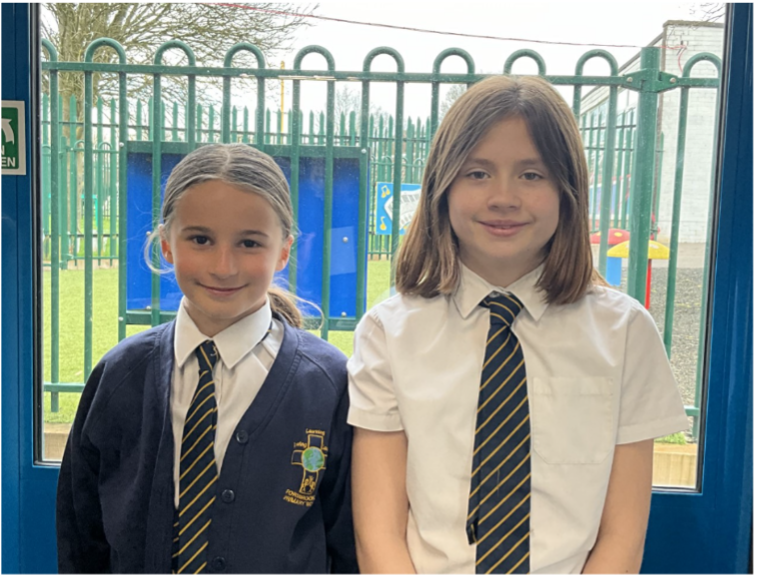
Agents of Change in the Curriculum
An agent of change is someone who passionately champions a cause that is meaningful and special to them.
In Science…
Children are immersed in the captivating stories of scientists, both historical and contemporary, who have dedicated their lives to specific scientific fields and left a profound impact on the modern world. For instance, they learn about exceptional individuals like Dr. Kat Dibb and Darwin, gaining insights into their groundbreaking work and its far-reaching consequences. By introducing children to these remarkable figures and their contributions, we aim to expand their horizons and instill the belief that anyone, driven by passion and determination, has the capacity to effect positive change. This approach nurtures a mindset of empowerment, inspiring children to explore their own interests and recognize the potential they possess to make a meaningful difference in the world.
In History…
Key historical figures and events are integrated into the curriculum, highlighting their profound impact on shaping our modern society. For instance, in Year 1, children delve into the courageous acts of Grace Darling and how her actions prompted the advancement of lifeboats over time. Throughout these lessons, children are actively encouraged to participate in open-ended discussions, exploring their personal reflections and perspectives on how they would respond if they found themselves in Grace Darling’s position. This process is facilitated through the windows, mirrors, and doors analogy, fostering a deeper understanding of empathy, critical thinking, and self-expression.
In Geography…
There are opportunities to educate the children about critical geographical issues such as climate change, deforestation and environmental degradation. Children conduct their own research on such matters which inspires them to take action, for example, to litter pick in the local area or planting trees in the community.
In Religious Education…
Children are provided with enriching opportunities to learn about various world religions as well as non-world religions. These opportunities not only enable children to gain knowledge about different belief systems but also encourage them to express their thoughts and ideas, fostering a climate of open-mindedness and mutual respect. Through comparative discussions, children explore and appreciate the diversity of worldviews and religious practices. Furthermore, in Year 6, they actively engage in thought-provoking conversations that explore the relationship between science and religion, embracing the perspectives and opinions of others. This approach empowers children to become agents of change themselves, promoting empathy, critical thinking, and a deeper understanding of the dynamics between different belief systems.
In our Sustainability curriculum…
Our sustainability curriculum empowers children to become agents of change, deeply committed to environmental stewardship and positive change. Through this curriculum, children gain awareness of pressing environmental issues and develop the courage to take action. By fostering a sense of responsibility and agency, we encourage active citizenship and equip children with the knowledge and skills to make a meaningful difference. For instance, in Year 2, children are taught about the vital role of bees in our ecosystem. They actively become ambassadors for bees, taking on the responsibility of assessing the school grounds to ensure the presence of areas where bees can collect pollen. Additionally, they create informative posters for the school, raising awareness among their peers about the importance of bees and their conservation. By engaging in hands-on projects like these, children develop a strong sense of environmental responsibility and become motivated to actively contribute to positive change. They embody the values of courageous advocacy by taking concrete actions to protect and support the natural world around them.
Some of the ways that Forsbrook Cares:
Raising Money for the Little Princess Trust Charity by Donating Hair
Isabelle donates 12 inches of her hair to the Little Princess Trust Charity, and raises £625 for the charity.
Forsbrook Children Spread Christmas Glee in Their Community
Forsbrook children spread Christmas glee into the community by sending out Christmas cards, biblical messages and prayers.
Thank You from the Food Bank!
A thank you message to everyone at Forsbrook Primary School from the Food Bank.
A Thank You from Birmingham Children’s Hospital
A thank you message from Birmingham Children’s Hospital.
Raising Money for Birmingham Children’s Hospital.
A HUGE thank you to our amazing Forsbrook families who contributed to raising money for Birmingham Children’s Hospital.
Forsbrook Takes Part in a Disability Awareness P.E. Day
A huge thank you for donations made to make it possible to support the international charity, Toilet Twinning and the Air Ambulance charities.

